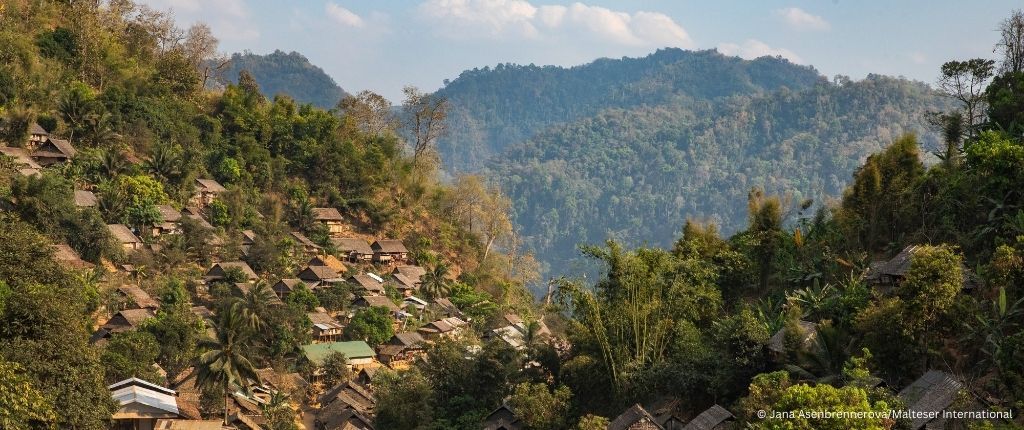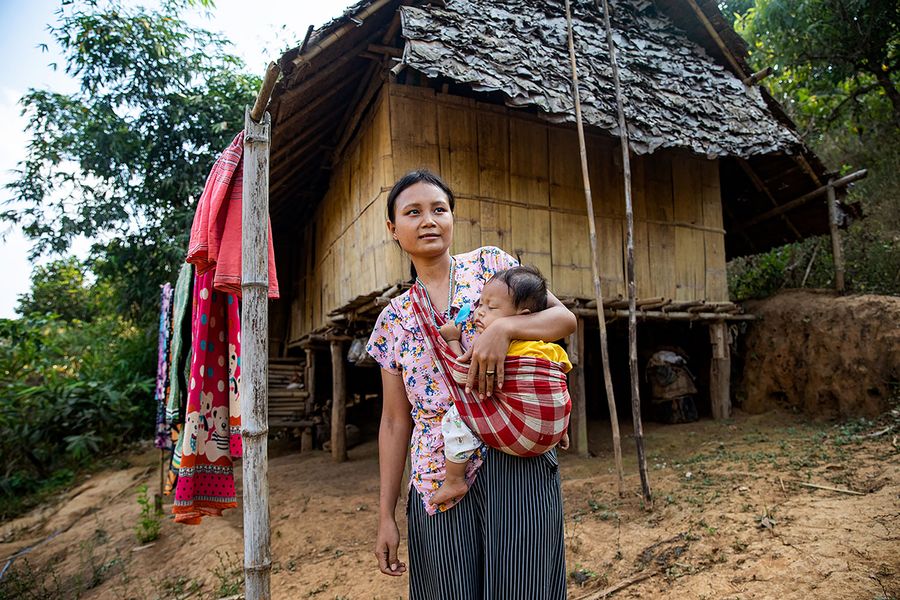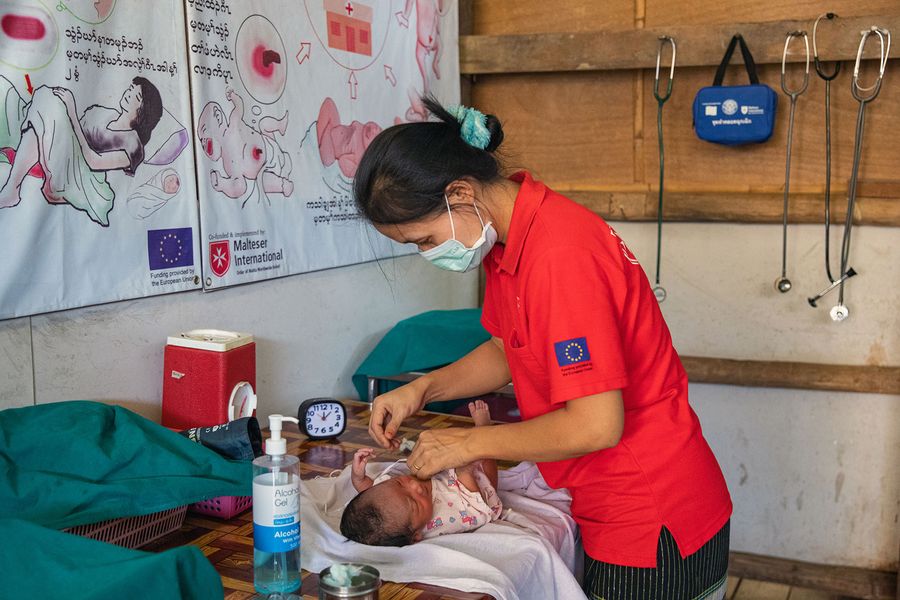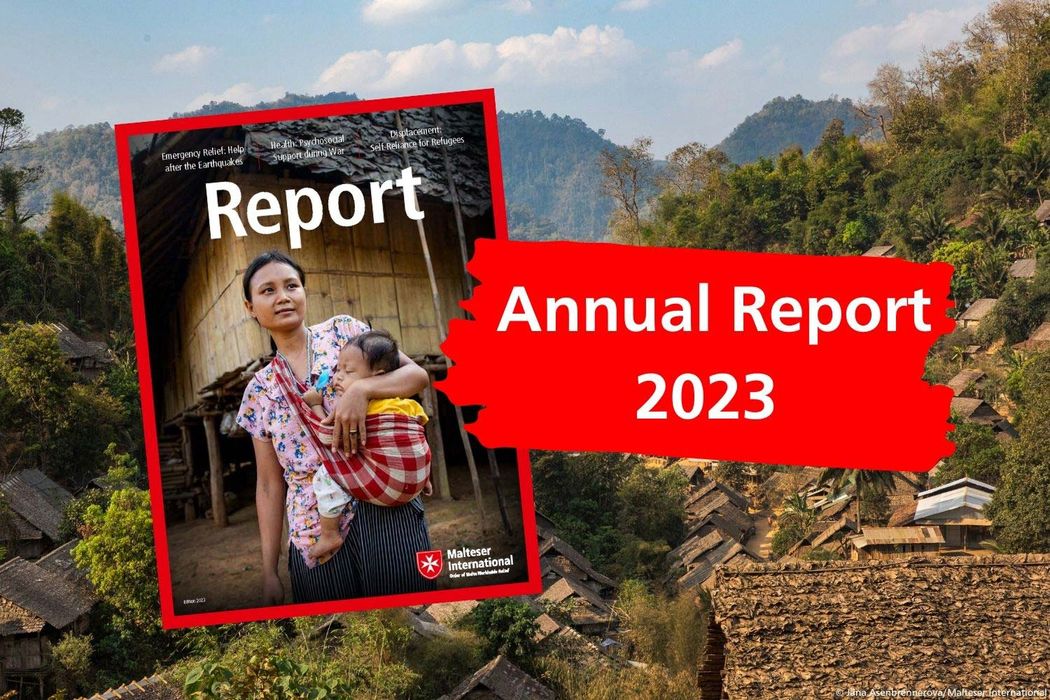
Naw Bu Gaw's hope for a better future

Naw Bu Gaw stands in front of one of the typical bamboo houses in the Mae La Oon refugee camp in Thailand, her youngest child cradled in a stretcher against her stomach. The 30-year-old petite woman gazes thoughtfully at the hilly landscape before her.
Naw Bu Gaw belongs to the Karen ethnic group, which has endured persecution and conflict in the border regions of Myanmar and Thailand for decades. Her story is one of many in the Mae La Oon and Mae Ra Ma Luang refugee camps, where around 20,000 people have sought refuge for decades.
Naw Bu Gaw fled to Thailand with her family as a small child. "My grandparents and two uncles were killed in our rice field. Our livestock was slaughtered, and our rice fields were destroyed. We could no longer stay in our village and had to flee," recalls Naw Bu Gaw, who witnessed these horrific events as a four-year-old.
For a whole year, the family hid in the forest, struggling to survive until they finally arrived at the refugee camp a few kilometers across the Thai-Myanmar border in 1999, where they could live in safety again. However, the past continues to haunt the family. Her father still suffers from the mental effects of those terrible events.

Despite the safety of the Mae La Oon camp, life remains challenging. Food is often scarce, infectious diseases are widespread, and there are hardly any opportunities to earn money. Naw Bu Gaw used to earn a small income from weaving, but today she no longer has time as she looks after her young children.
Naw Bu Gaw regularly visits the Malteser International hospital in the camp with her three-year-old daughter and her one-and-a-half-year-old son. Her children often fall ill. "I have often received help from Malteser International," says Naw Bu Gaw. "My children and I were vaccinated to prevent illness, and I also received support during my pregnancies. Both my children were born here in the hospital. We were always well cared for."
Malteser International provides vital medical care in the Mae La Oon and Mae Ra Ma Luang camps, with a focus on mother and child health. In addition, psychosocial support services are offered to the displaced people. We support malnourished children with close examinations and supplementary food. The construction and maintenance of water and sanitation facilities is another key aspect of our work.
Naw Bu Gaw has only one wish for her children: a good future. With your donation, you can help people like Naw Bu Gaw and her family improve their quality of life.
Our Annual Report 2023
Naw Bu Gaw is on the cover of our 2023 Annual Report, where you can find more information about our work in Thailand and worldwide.









